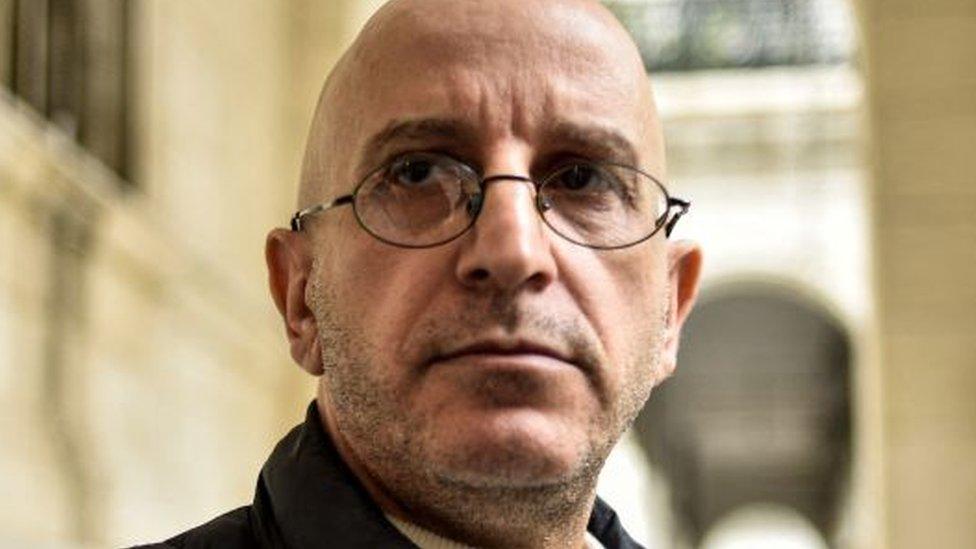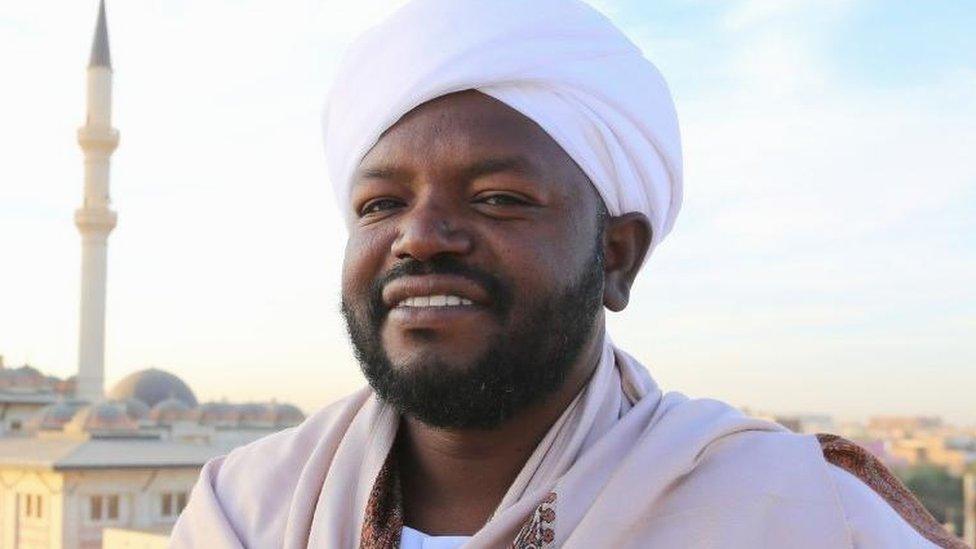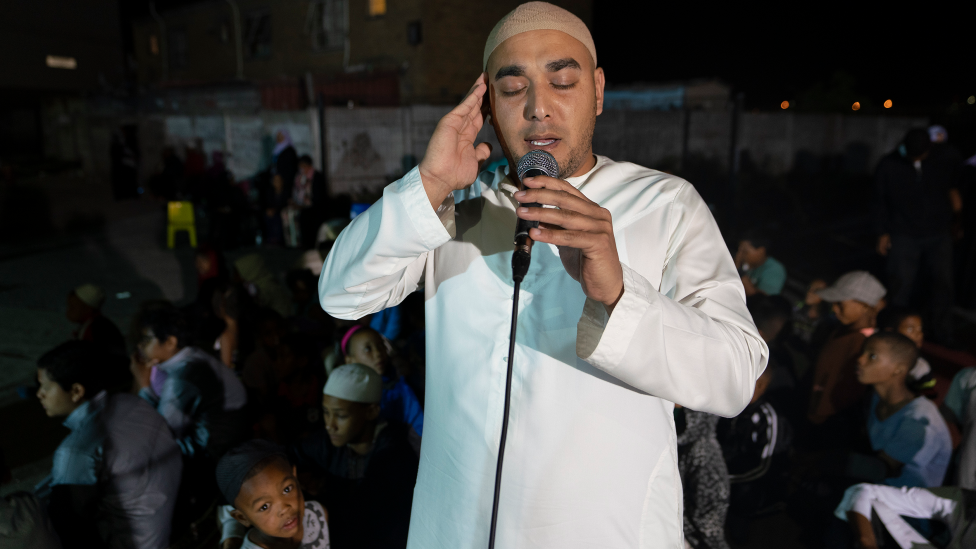Algerian author Said Djabelkhir sentenced to jail for offending Islam
- Published

Said Djabelkhir was accused of disrespecting the Quran
An author of Islamic books in Algeria has been sentenced to three years in prison for offending the religion.
Said Djabelkhir said he was surprised by the severity of the sentence he had been given and would appeal.
He was tried after seven lawyers and a fellow academic lodged complaints against him for disrespecting Islam.
Mr Djabelkhir had said the animal sacrifice during the Muslim festival of Eid was based on a pre-Islamic pagan ritual.
He also suggested that parts of the Quran, such as the story of Noah's Ark, might not be literally true and criticised practices including the marriage of young girls in some Muslim societies.
Islam is Algeria's religion of state. The law imposes a fine or prison sentence on "anyone who offends the Prophet or denigrates the dogmatic precepts of Islam, whether it be by writings, drawings, a statement or another means".
Muslims believe in slaughtering an animal during the annual Eid-al-Adha festival to remember, they say, Prophet Ibrahim's willingness to sacrifice his son, Ismail, when God ordered him to.
Speaking to AFP news agency after being released on bail, Mr Djabelkhir said: "The fight for freedom of conscience is non-negotiable. It is a fight which must continue."
Mr Djabelkhir, 53, has written two books on Islam.
He has been quoted in media reports as calling for "reflection" on Islam's founding texts.
He said his accusers believe that everything in the Quran is literally true, and do not distinguish between "history" and "myth" - such as the story about Noah's Ark.
"Everyone thinks of history with a capital 'H'," he was quoted as saying.
He recently told AFP that "the traditional readings [of the Quran] no longer meet the expectations, needs and questions of modern man".
Muslims believe the Quran is the word of Allah, and was revealed to Prophet Muhammad as a guide to mankind.
Rights group Amnesty International's deputy regional director Amna Guellali described the three-year sentence as "outrageous" and a "chilling setback for freedom of expression" in Algeria.
"Punishing someone for their analysis of religious doctrines is a flagrant violation of the rights to freedom of expression and freedom of belief - even if the comments are deemed offensive by others," Ms Guellali added.
This is not the harshest sentence handed down for offending Islam in Algeria.
Last year, anti-government activist Yacine Mebarki was given a 10-year sentence after police found a copy of the Quran with ripped pages when they raided his house. The sentence was later reduced to one year.

You may be interested in: Pakistan blasphemy case
"I kept thinking, what is happening to me?" - Asia Bibi remembers being taken to prison in Pakistan
- Published9 February 2021

- Published1 March 2021
